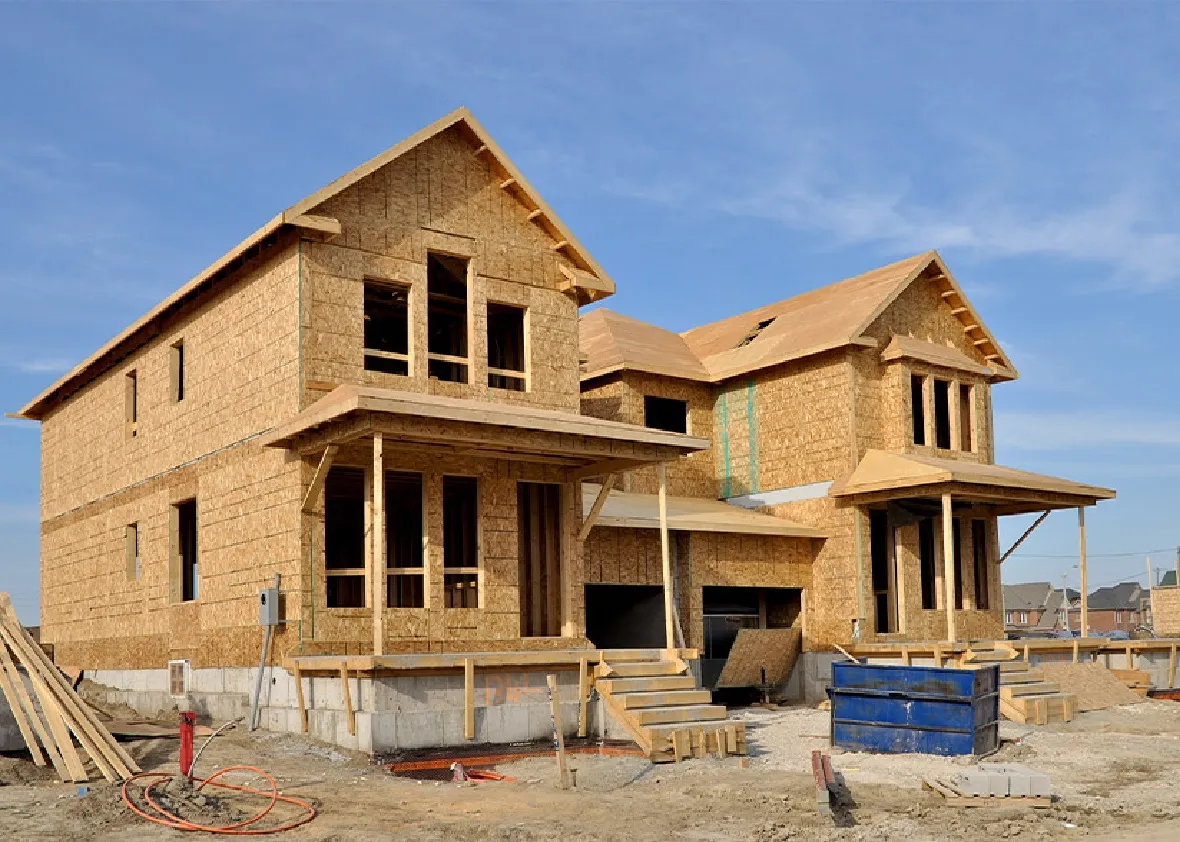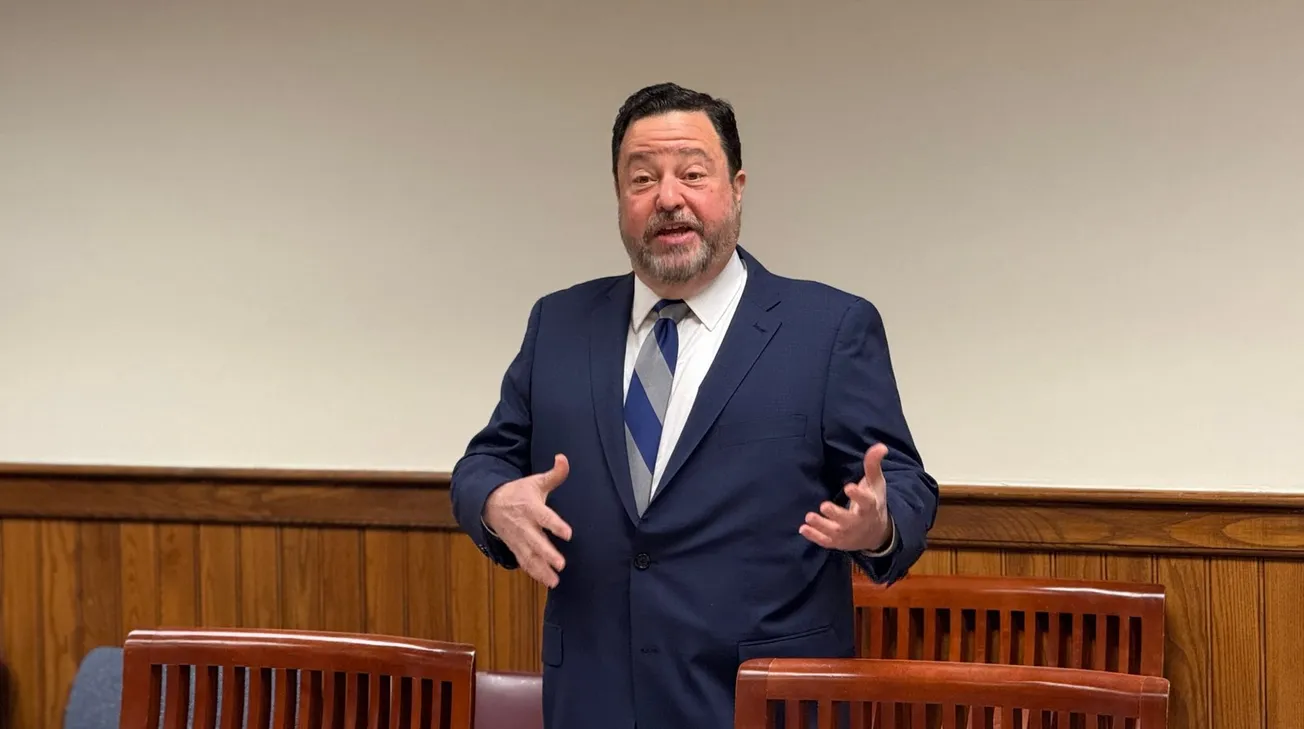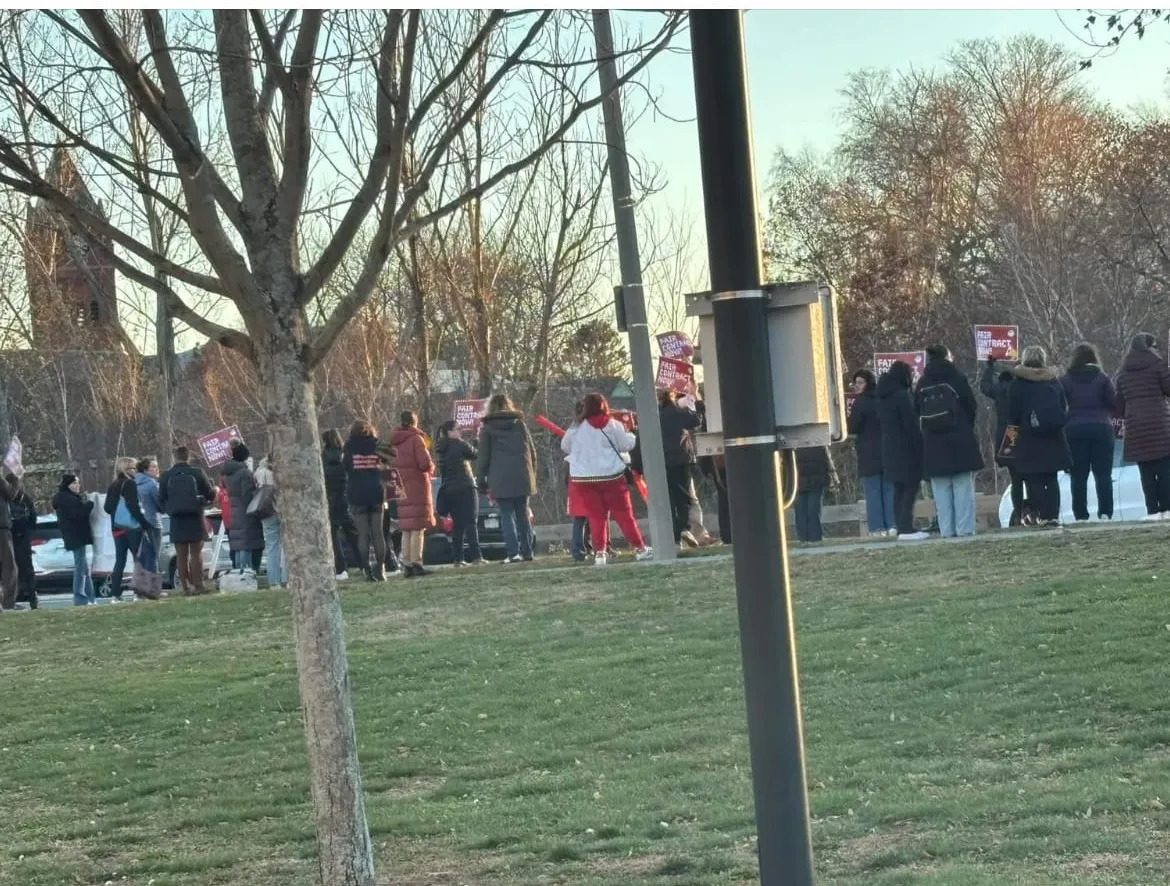Table of Contents
Among the articles at the upcoming fall Town Meeting will be one to adopt the state’s Specialized Stretch Energy Code, which will promote the use of electricity in utilities.
Sustainability Director Ken Pruitt doesn’t like the name. He thinks New Construction Energy Code is more accurate.
Regardless, the code would require new residences to have electric power systems or be pre-wired for future electrification, as well as have solar energy roof panels if they have mixed fuel systems of electricity and gas and it is feasible. Solar panels are not feasible for all roofs and buildings using all electric fuel are exempt from needing them.
“If you choose to build without fossil fuels, the current code applies,” Pruitt explained. “This adds a few more provisions. For a new building with some fossil fuels, you need to pre-wire for future electrical use.”
“It will enhance the existing stretch energy code that Winchester had adopted in 2010 by requiring pre-wiring to any and all fossil fuel powered appliances and/or HVAC units,” Climate Action Advisory Committee member Joshua Bers added. “This enables for easy future electrification. Additionally mixed fuel homes require installation of solar panels to offset carbon emissions. This legislation would apply only to all new construction in town, not to renovations or new additions and new construction that is fully electric powered has no additional requirements over the base stretch energy code.”
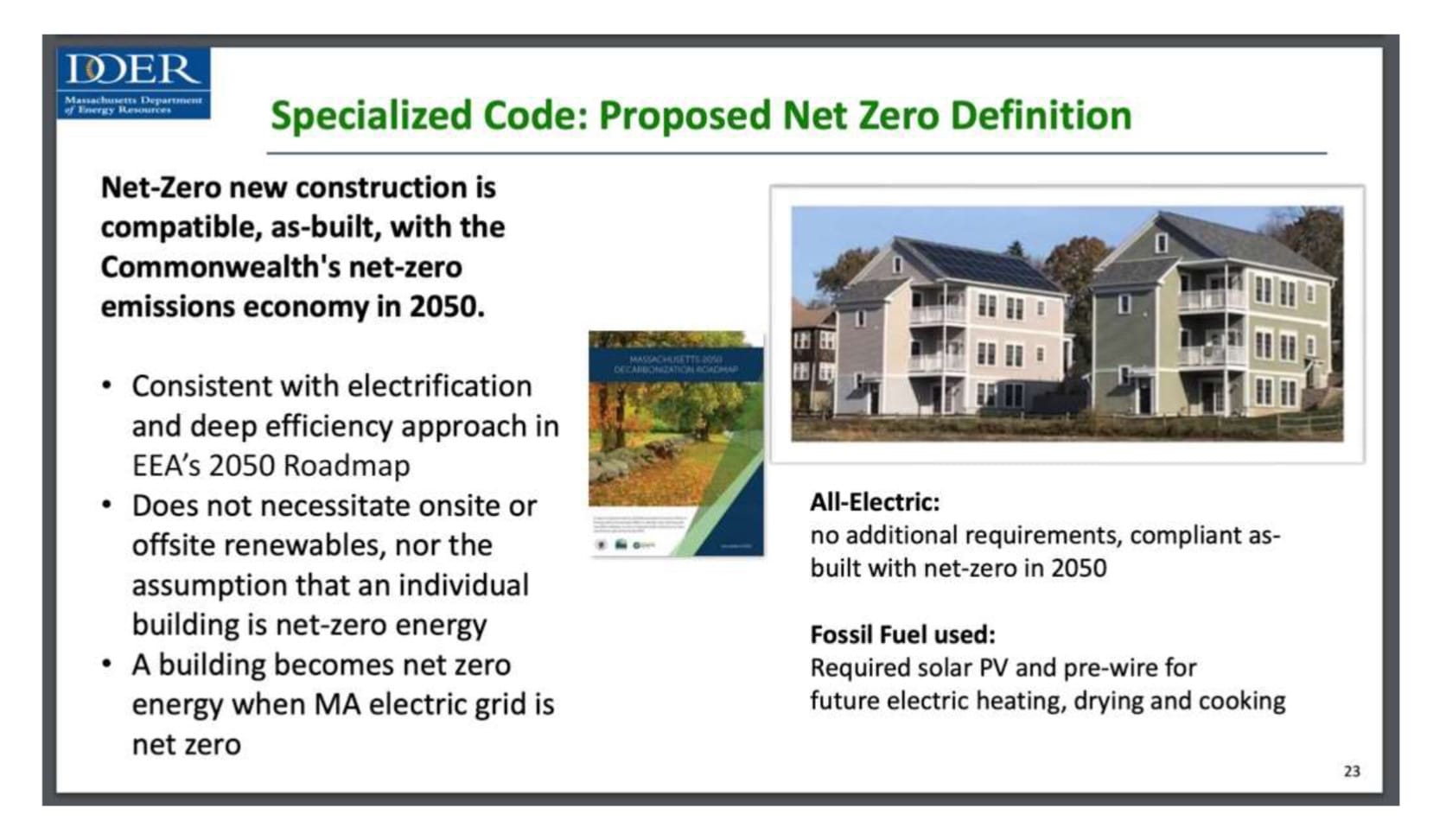
There is no cost to the town and, although it may increase construction costs, Pruitt said it will save money down the road.
“During new construction, it’s a layup to put in the wiring,” he said. “It’s ill-advised not to pre-wire. Waiting and doing it later is infinitely more expensive.”
Bers called the cost of the wiring “minuscule compared to the overall construction cost.”
“While there’s some additional cost,” he said, “it’s across the board and won’t give any developer an advantage over any others.”
As a result, Pruitt sees acceptance of the new code as a consumer protection measure.
“As a society, we are pushing for all electric utilities and those left using gas will pay more,” he said. “The cost of fossil fuel will increase more rapidly than electricity.”
He also said it’s an element of Winchester’s Climate Action Plan, which calls for an 80% reduction in greenhouse gas emissions by 2050, and will lead to eligibility for grants.
“One of the important benefits to the town, other than helping to reduce our carbon pollution, is that it positions the town to become a Climate Leader [in the Green Communities program] and therefore eligible for additional grant money from the state, estimated to be worth $100-200K annually,” Bers said. “This is also a great opportunity that applies to municipal and residential buildings. Usually, the town can only affect municipal buildings, but 70% of carbon emissions come from residences. While older buildings will continue to use fossil fuels, at least we won’t be adding to it.”
People often try to get away with classifying new construction as a renovation by leaving a small portion of a building standing, often a fireplace and chimney. Pruitt said the town doesn’t accept that too much, although gutting a building while leaving the underlying skeleton intact is exempt.
“If it’s considered new construction, it will fall under this,” Bers confirmed.
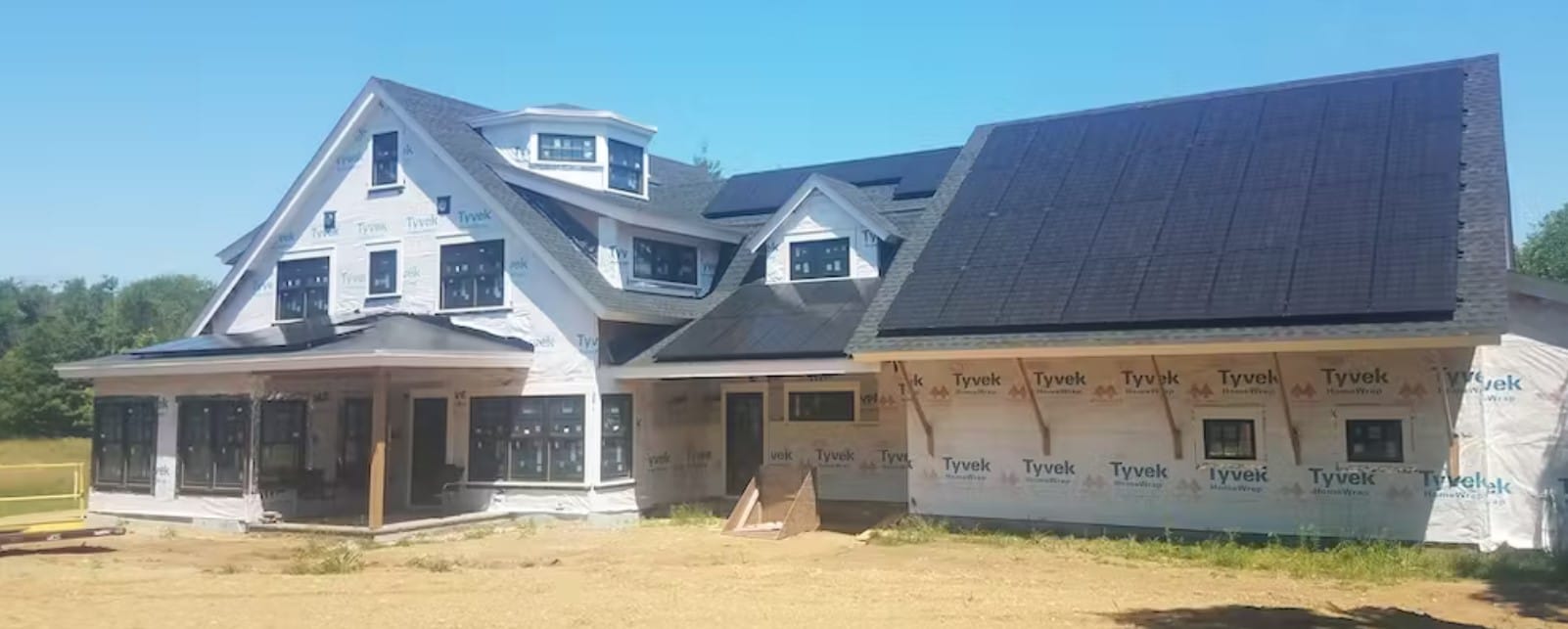
What’s a Stretch Energy Code?
“In 2009, Massachusetts became the first state to adopt an above-code appendix to the ‘base’ building energy code, the Stretch Code,” the state Department of Energy Resources website reads. “The Stretch Code, which emphasizes energy performance, as opposed to prescriptive requirements, is designed to result in cost-effective construction that is more energy efficient than that built to the ‘base’ energy code. This ensures that new buildings are designed and constructed with energy efficiency in mind.”
Forty-five other communities have adopted the code, including neighboring Arlington, Lexington and Medford.
“That’s a pretty good number and a testament to how popular it is,” Pruitt said.
Some communities have added language to the state model proposal, but Pruitt said he is “not an advocate of doing that.”
“I don’t anticipate we’ll deviate from the state’s language,” he said. “It doesn’t require unique language.”
Wakefield’s November 2023 Town Meeting Warrant article read, “To see if the Town will amend the General Bylaws by voting to rescind Chapter 180 thereof, entitled ‘Stretch Energy Code,’ and to replace it with a new Chapter 180 entitled ‘Specialized Energy Code,’ for the purpose of regulating the design and construction of buildings for the effective use of energy and reduction of greenhouse gas emissions, with an effective date of July 1, 2024.”
It passed 109-33.
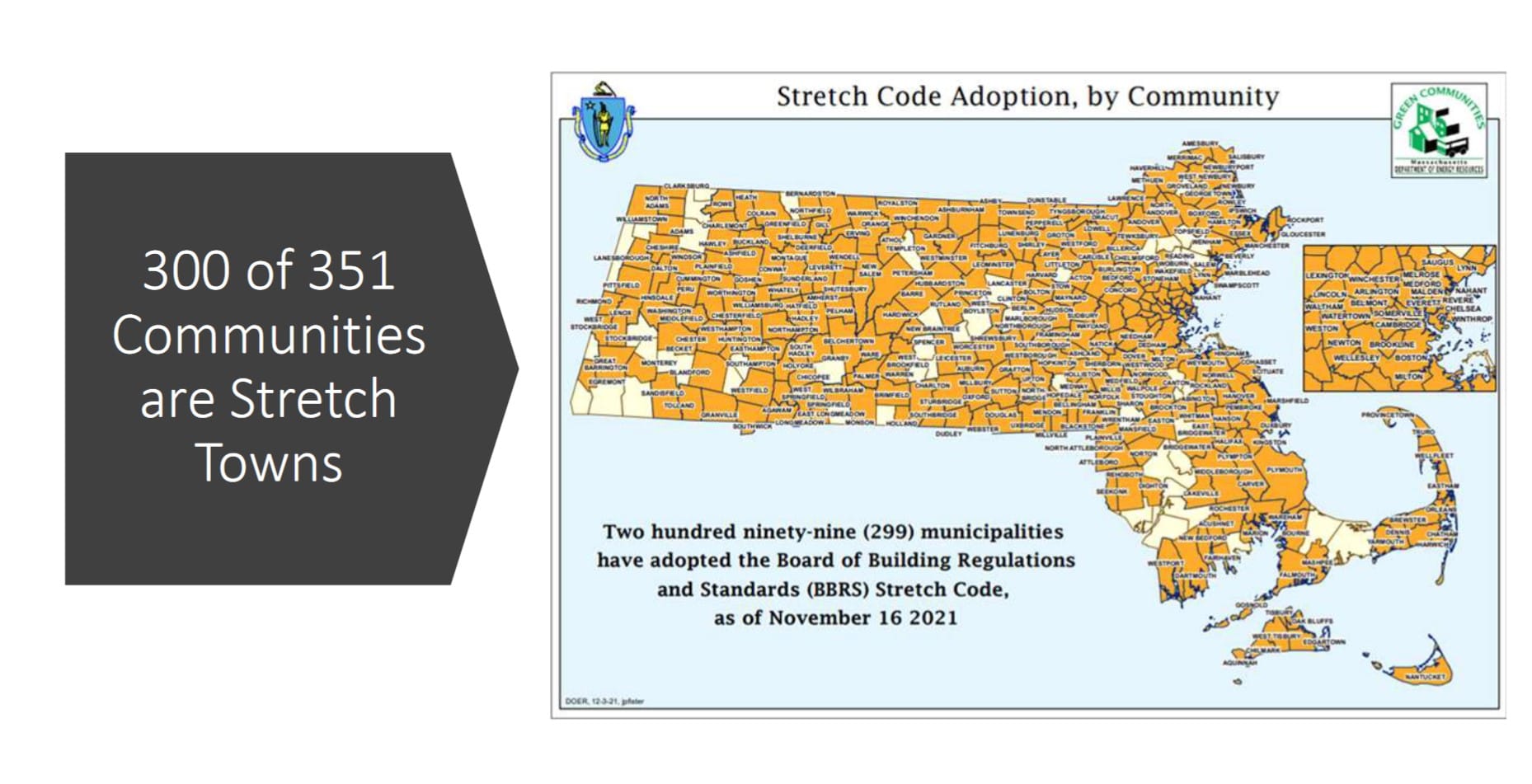
The new Specialized Energy Code is part of the International Energy Conservation Code (IECC) adopted by the state and federal government to the existing Stretch Code, itself a comprehensive set of amendments seeking to achieve all lifecycle cost-effective energy efficiency in accordance with the Green Communities Act of 2008, as well as to reduce the climate impacts of buildings built to this code with a purpose to provide a more energy efficient and low greenhouse gas emissions.
Pruitt is fairly confident the upcoming warrant will pass in the fall.
“I think a fiscally minded resident or Town Meeting member should be in favor of this,” he said. “This sets a building up for an easy switch to electricity.”
Bers agreed.
“There’s a good chance it will pass because it addresses new construction only,” Bers added. “It’s not something the average resident will need to worry about.”

